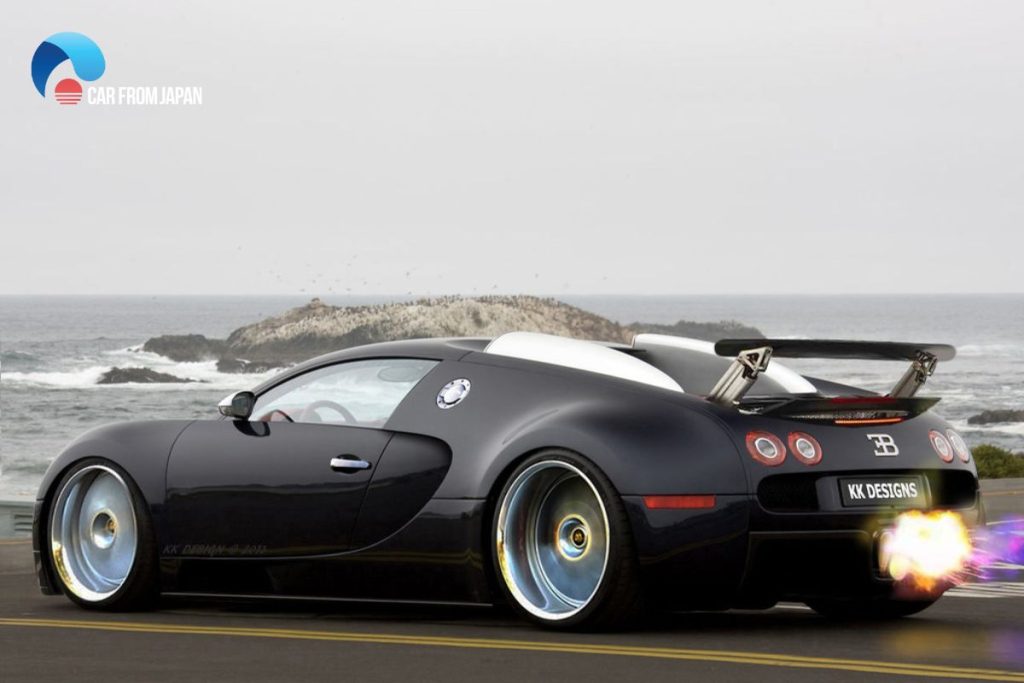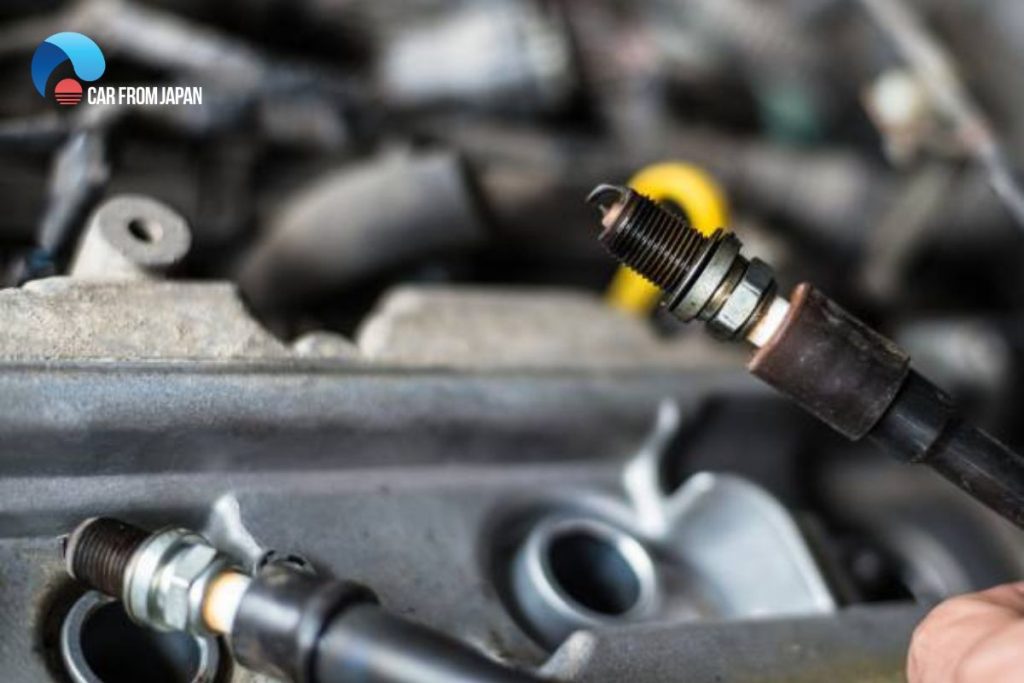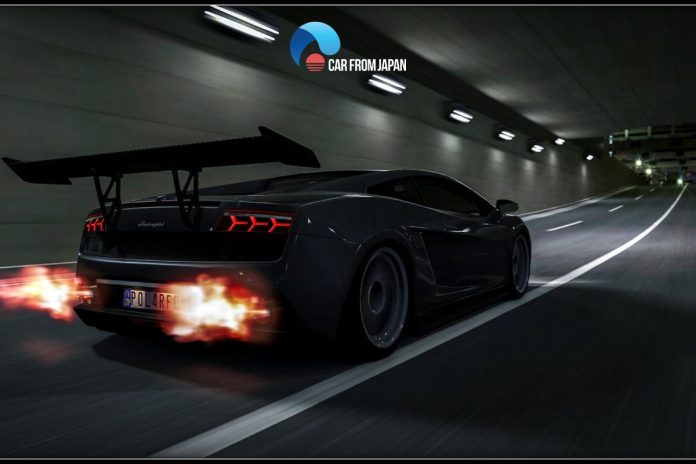That loud pop! or bang! coming from your exhaust isn’t just startling—it’s a definite sign of trouble. Car backfiring is a symptom of incomplete or improperly timed combustion, and it’s something you should never ignore. We dive into the five most common reasons your engine is making those alarming noises and how to fix the car backfire!
Contents
What Causes A Car To Backfire: 5 Reasons Behind The Problem
Car backfiring is not alarming as long as it involves only screeching sounds. The noise indicates that the vehicle is out of tune and is performing poorly.
However, you have a legitimate reason to worry if there is smoke. Let’s know about 5 reasons that cause car backfires.
A high fuel-to-air ratio
Sometimes, the engine gets the supply of more fuel than it can burn. This condition is known as ‘running rich.’
When an engine runs rich, it burns fuel slowly, causing the extra air to forcefully burn the unburned fuel and spit it out when the exhaust valve opens.
A dirty air filter is a reason for this problem to happen in most cases.
Broken distributor cap

Broken Distributor Cap is one of the answers to the question “What cause a car to backfire”. Some car models don’t have ignition coils on the spark plugs.
They distribute electrical pulses across spark plugs with the use of a distributor cap and a set of wires. These pulses are instrumental in making the spark plugs produce the sparks that ignite the fuel.
A broken or damaged distributor cap allows moisture to leak in that causing a spark from one cylinder to fire out another cylinder. It disrupts the synchronization of the sparking and causes a car to backfire.
3. Inaccurate engine timing
Also known as retarded timing, it indicates that the engine cycle of fuel-compression-ignition-exhaust in the cylinder head is out of sync with the bottom part of the cylinder.
Due to this problem, the ignition cycle begins late in the combustion chamber, causing the burnt fuel to come out with force when the exhaust valve opens.
4. Carbon tracking
When talking about what makes a car backfire, we have to think about carbon tracking. Carbon tracking can happen to all types of vehicles – the models that use distributor caps and the ones that have ignition coils.
In an old vehicle with a distributor cap, the sparks can go crossways from one wire to another due to environmental factors.
In case it becomes a regular phenomenon, a carbon that functions as a shortcut to the spark will backfire car.
Vehicles that have ignition coils will show almost similar symptoms. The sparks will transmit through the wrong route, making the number of sparks left in the cylinder inadequate for burning the fuel.
The next ignition will be sufficient to fire the plug, but it will require more fuel in the cylinder this time. It will create a rich fuel situation and cause a backfire.
5. Worn-out air gulp valve
Vehicles manufactured in the early 2000s or before that period are likely to have an air injection unit with an air gulp valve. The valve is the passageway for air to enter the system when the engine is under load.
When it’s malfunctioning, it releases air into the combustion chamber even at the time of deceleration. It creates the ignition of unburnt fuel and causes a car backfire.
Car Backfire – Diagnosis and Troubleshooting
When backfires suddenly happen in your car, you should do the following troubleshooting inspections with 5 steps:
Step 1: Examine the Engine Warning light
Checking the engine warning light is the first thing you should do when you find out about backfiring in your car.
According to auto experts, in most cases causing car backfiring will make the engine warning light of the car to turn on.
In case your car doesn’t show any sign in the engine warning light, step 2 is exactly what you should do.
Step 2: Inspect the upstream exhaust leak
If unburnt fuel meets air in the exhaust system, it will burn, causing the screeching car backfire sound. Thus, you need to check the upstream exhaust leak to clear the air of any suspects.
Normally, people often think that the exhaust system works under pressure constantly to eliminate waste gases from the car engine.
But actually, this is wrong. Each car engine system contains many pressure pulses and vacuum, which are brought about by the expulsion of the combustion charge concurrently with the opening and closing of the same valve.
This forms a vacuum event, forcing fresh air into the exhaust system (causing the car backfiring). Therefore, you have to seal any leaks to make sure that there are no exhaust leaks.
Step 3: Check the Gulp Valve
Most engines have 1 or 2 air gulp valves (i.e., one air gulp valve for every exhaust manifold). To check the condition of the valves, you should remove them and blow into them from each inlet/outlet.
As air will flow one way in a good valve, if you observe air flowing in both ways, the valve is broken, and it’s time to replace it. To buy replacement valves, you can go to a nearby repair workshop or buy them from online shops.
Step 4: Check the Spark Plugs

Every car has an ignition system that is triggered by an electronic pulse signaling the ignition coil to fire.
If your engine’s ignition system is working well, the resistance in the system will be calibrated into the system.
But if there is something wrong with the resistance, it will fail the ignition system, causing the car to crossfire into the wrong cylinder.
The inbuilt computer can not detect the problem; therefore, the Check Engine Light may not turn on.
To avoid this unexpected case, auto experts recommend you change spark plugs regularly and always check them when you go for service.
Step 5: Inspect your air sensor
Each car has an onboard computer that constantly inspects and collects data on the air entering the engine. All this process is done through the mass air flow sensor.
The onboard computer will get incorrect readings if there are some problems with the sensor, which will happen when the sensor cokes. Getting inaccurate data will make the computer result in a lean mixture condition, which isn’t enough to turn on the check engine light.
To fix this problem, you are recommended to remove and clean the mass airflow sensor. In case the sensor is broken, you will need to buy a new one.
How To Prevent Car Backfiring Effectively
Although contemporary engine control systems mitigate most of it, there are steps you can take to keep your automobile from backfiring.
Replace the oxygen sensors
It’s not an often-replaced item, but it can help avoid backfiring when a new one (or two, as some automobiles require) is installed, because they monitor the oxygen level in the fuel system and communicate that information to the engine management unit.
It’s probably about that time if your automobile has more than 75,000 miles. Even if this does not eliminate backfiring, your engine will operate more effectively and your mileage may increase.
Stop any air leaks
If your idle air control valve and mass airflow sensor are in good working order, inspect for frayed, disconnected, or missing vacuum hoses. They’re generally accessible and straightforward to fix with a little tracing. It’s a cheap but effective remedy.
Rekindle that fire
Our fathers and grandfathers had to inspect and clean spark plugs almost as frequently as they mowed the yard. We have it simpler, but don’t forget to change the plugs and plug wires as necessary to avoid a car backfire.
Check your owner’s handbook for recommended replacement intervals, and keep an eye out for anything other than typical wear on the spark plug tips.
Examine the engine belts
Depending on the make and model of your vehicle, you may have many belts at the front of the engine or simply a single serpentine belt for different components.
Regardless, belts deteriorate and the tension loosens with time. This may cause timing issues, and your engine control unit may not be able to adjust entirely.
Maintain a healthy exhaust
Car backfiring is particularly visible in the exhaust system, where the catalytic converter has a difficult life even under normal conditions. Backfiring indicates that the cat con isn’t working correctly or is reaching the end of its useful life.
FAQs On Car Backfire
What is the impact of backfire on an engine?
When the air-fuel mixture in your automobile combusts someplace beyond the engine’s cylinders, it causes an engine backfire.
If left unchecked, this can cause damage to your car’s exhaust or intake, and it also means that your engine isn’t producing as much power as it could, wasting a lot of gasoline.
How loud is an engine backfire?
Backfiring can produce a throaty gurgling or a faint popping sound. However, if you hear what sounds like a loud firecracker exploding beneath your hood or coming from the exhaust, there is a problem.
Can a misfire be caused by a backfire?
Backfiring in internal combustion engines happens outside of the combustion chamber and is usually caused by an incorrect air-to-fuel ratio.
An extremely lean air-fuel combination can cause a failure to ignite in the combustion chamber, often known as a “misfire.”
Final Words
A car backfire that appears in your exhaust pipe can not hurt your beloved car immediately, but it can be a warning sign of a coming problem or an indicator of a more serious issue.
Learning about what causes backfire in a car and always ensuring that your vehicle is running optimally by maintaining it regularly is what you should do to prevent any unexpected problems.
Did you enjoy our article? Feel free to share this article with your friends and in case you have any questions, leave them in the comment box. Let’s keep the conversation going on!




I have noticed you don’t monetize your blog, don’t waste your traffic, you can earn additional cash every month because you’ve got high quality content.
If you want to know how to make extra bucks, search for:
Mertiso’s tips best adsense alternative
I see you don’t monetize your website, don’t waste your traffic, you can earn additional cash every month.
You can use the best adsense alternative for any type of website
(they approve all websites), for more details simply search in gooogle:
boorfe’s tips monetize your website
I have noticed you don’t monetize your site, don’t waste your traffic, you can earn extra
cash every month. You can use the best adsense alternative for any type of
website (they approve all websites), for more info simply search
in gooogle: boorfe’s tips monetize your website
2002 mazda Miata, Did a DIY timing job….
lots of poping sounds and rough idle and rough acceleration
Nice job explaining all this. When my 2002 Porsche Boxter has been sitting overnight and the engine is cold, after start-up and then accelerating I hear a loud, single “BANGing” noise emitting from behind the passenger seat near where the mid-engine flat-six is located. After that, it drives fine, no more noise. Is this a backfiring noise? I guess I could have someone observe the duel exhaust pipes after taking off to check this theory.